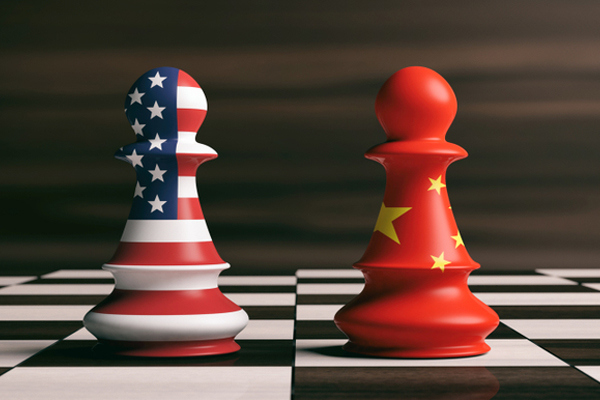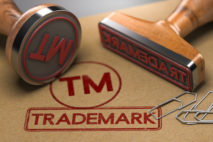 Like hundreds of American companies big and small racing to meet an October 16 deadline to request certain products be excluded from U.S. tariffs on Chinese goods, HP Inc. has asked the U.S. Office of Trade Representative to exclude certain “legacy” all-in-one toner cartridges made in China.
Like hundreds of American companies big and small racing to meet an October 16 deadline to request certain products be excluded from U.S. tariffs on Chinese goods, HP Inc. has asked the U.S. Office of Trade Representative to exclude certain “legacy” all-in-one toner cartridges made in China.
HP’s rationale for requesting the exclusion is interesting. The cartridges are used in earlier generation office printers not expected to grow in market share, they are only made in China, and they are not strategically important to China’s strategic industrial policies.
Most interesting, however, is that a 25 percent tax hike on the products will likely hurt HP economically by driving customers to buy fakes and infringing copycat products, according to two Section 301 Investigation “Form to Request Exclusion of Product” requests filed on September 27 and October 3.
HP states:
Because this market segment is particularly price sensitive, a tariff would encourage these customers to switch to less-expensive, lower-quality cartridges, such as the products made by Chinese IP infringers or copycat “knockoffs.” Infringing toner cartridges and knockoffs manufactured in China are typically lower in both quality and price, which is a function of the fact that these manufacturers do not invest in the R&D needed to bring a product to market. As a result, they produce a significantly inferior product and do not provide warranty support to printer owners when things go awry. A 25 percent tariff would make it more difficult for HP to compete with infringing and knockoff toner cartridges manufactured in China, inadvertently driving the growth of illegitimate products from China, while making these inferior and less reliable products more attractive to U.S. small- and medium-sized businesses in the United States. This outcome would be a detriment to these businesses and run counter to the Administration’s objective of minimizing “consumer impact.”
HP’s product exclusion requests relate to the 25 percent tariff on $34 billion worth of goods from China the Trump Administration imposed starting on July 6 (see “The U.S. and China Trade War Heats Up as Tariffs Are Imposed”). Two other rounds (or tranches) of tariffs have been imposed since then, one on $16 billion worth of Chinese imports that began on August 23 and a third that went into effect last month that slaps a 10 percent tax on $200 billion worth of goods and is set to increase to 25 percent on January 1 (see “U.S. Imposes Tariffs on $200 Billion of Chinese Imports” and “U.S. and China Trade War Deepens as New Tariffs Take Effect”).
The filing deadlines are the last chance businesses have to avoid the tariff. The next filing deadline is December 18, to be excluded from the $16 billion tranche. The administration has not set a deadline for exclusion requests for the $200 billion tariff, according to Bloomberg.
The U.S. Office of Trade Representative says it reviews each request and bases decisions using the same criteria for all requests, regardless of the size of the company: 1. Is the product available only from China? 2. Would the duties cause severe economic harm to the company or U.S. interests? 3. Is the product strategically important?
In two separate filings, HP describes the cartridge models it wants excluded. One is a “a custom-designed, consumable used in a subset of well-established printers.” This cartridge requires “specialized inputs” sourced only in China and it is assembled only in China, HP says. “Because this product is used in earlier generation printers, production volume of this cartridge is small and declining. As a result, there is simply no economic incentive for HP and its suppliers to develop a new supply chain or capacity to manufacture these products in the United States or other third countries.”
HP describes the other cartridge is as “a consumable used in certain legacy-technology, business-grade printers” compatible with popular A4 single-function monochrome printers. The cartridge “is assembled on efficient, long-running production lines in China that have been optimized for the unique supplier ecosystem in China.” HP says it has explored alternative sourcing options but concluded changing is not economically feasible.
And in terms of the strategic value of both cartridges, HP argues that while the technology is proprietary, the legacy cartridges are not “high-growth, leading edge” products that would be important to China’s strategic Made in China 2025 industrial policy. “In the printing space, the Chinese government is now training its sights on technology growth segments that are and/or will be advanced far beyond the technology utilized in the AiO toner cartridge at issue here,” HP argues.
HP’s exclusion requests offer a sobering view of the company’s precarious position in this deepening trade war, something some financial analysts have expressed concern about (see “Some Analysts See Potential Trouble for HP around Tariffs and Supplies”). On the one hand, we see how deeply, perhaps intractably, integrated the company is with China’s “unique supply chain eco-system.” On the other hand, if HP’s requests are denied, tariffs could push much of its established supplies business into the arms of counterfeiters and makers of new-build compatibles. Multiply that dilemma by thousands and you get an idea of the challenges other companies great and small are facing.





